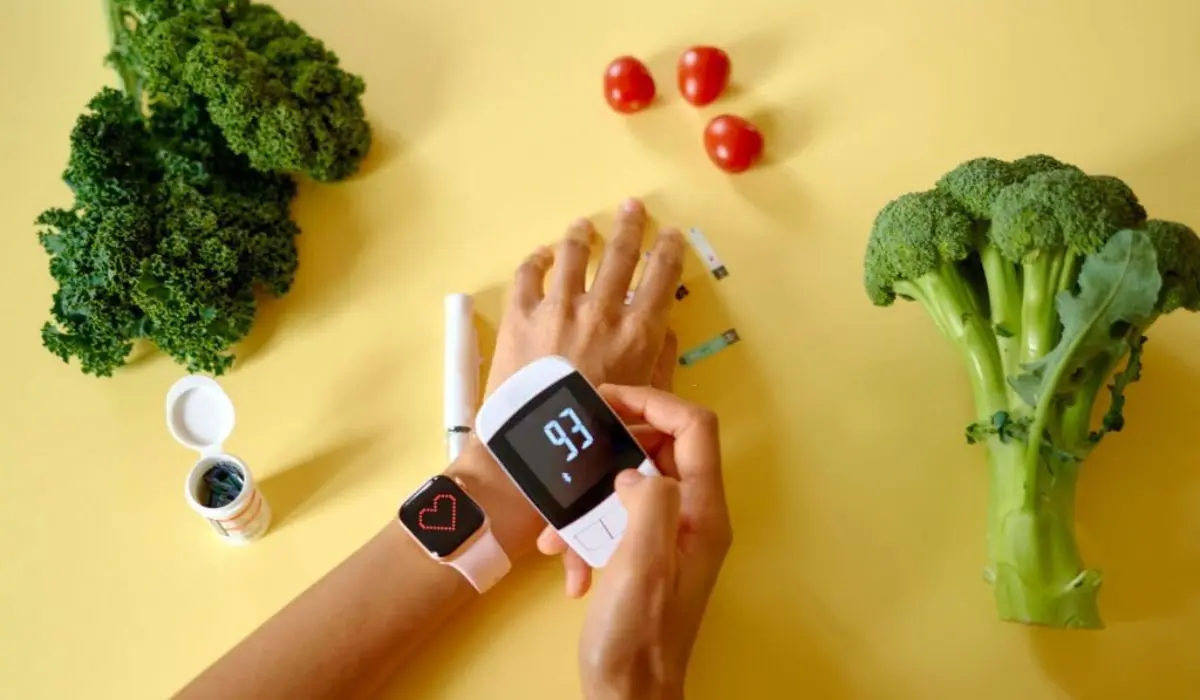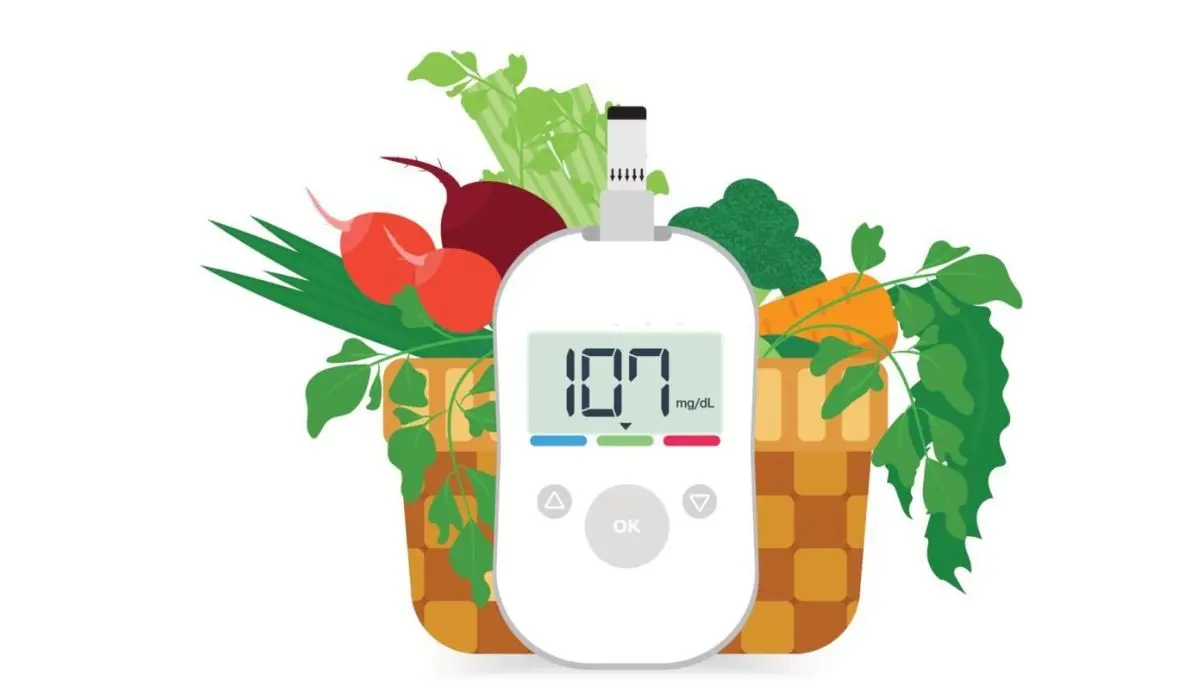Health
Foods To Avoid If You Have Diabetes -Say No To These Foods If You Have Diabetes!

Are you struggling to manage your diabetes? Well, let’s cut to the chase and talk about the foods you should steer clear of. Your dietary choices play a crucial role in controlling this condition.
Understanding how certain foods affect your blood sugar levels is key. Say goodbye to sugary foods, rich dishes, and refined carbohydrates that can send your glucose soaring. Instead, opt for healthier alternatives like non-starchy vegetables and low-fat dairy products.
Did you know that fried foods and baked goods made with white flour can wreak havoc on your blood sugar? It’s true! And those tempting drinks loaded with hidden sugars are no better either. So, if you’re craving french fries or indulgent treats, think twice before taking a bite. let’s dive deeper into the connection between diet and diabetes management together!
Understanding The Impact Of Food Choices On Diabetes

▪️ The Role Of Carbohydrates, Fats, and Proteins
Carbohydrates, fats, and proteins all play a significant role in affecting blood sugar levels for individuals with diabetes. Understanding how each of these macronutrients affects your body is crucial.
▪️ Varying Impacts Of Different Carbohydrates
Not all carbohydrates are created equal. Some carbohydrates have a higher glycemic index, causing rapid spikes in blood sugar levels. On the other hand, complex carbohydrates with fiber tend to have a slower effect on blood glucose.
▪️ Importance of Portion Control and Mindful Eating
For diabetics, portion control and mindful eating are essential practices. By controlling portion sizes and being mindful of what you consume, you can better manage your blood sugar levels. It’s important to strike a balance between enjoying your favorite foods and keeping an eye on your daily calorie intake.
▪️ Identifying High Glycemic Index Foods
High glycemic index foods can cause significant spikes in blood sugar levels. Diabetics should be cautious about consuming these types of foods as they can lead to unstable glucose levels. Examples include sugary beverages, white bread, rice cakes, and processed snacks.
▪️ Managing Diabetes and Obesity
Diabetes and obesity often go hand in hand. Maintaining a healthy weight is crucial for managing diabetes effectively.
By adopting a balanced diet that focuses on nutrient-dense foods rather than empty calories, individuals with diabetes can improve their overall health.
▪️ Considering LDL Cholesterol Levels
Diabetes increases the risk of developing high-density lipoprotein (LDL) cholesterol or “bad” cholesterol levels. To mitigate this risk factor, it’s important for diabetics to make informed food choices that promote heart health. Opting for lean proteins such as chicken or fish instead of fatty meats can help manage cholesterol levels.
Top Foods To Avoid With Diabetes
1. Sugary Beverages
Sugary beverages are a big no-no for individuals with diabetes. These drinks can cause a rapid increase in blood sugar levels due to their high sugar content. It’s best to steer clear of sodas, energy drinks, sweetened teas, and fruit juices that are loaded with added sugars.
2. Processed Snacks
It’s important to avoid processed snacks that are high in refined carbohydrates. These include chips, cookies, pastries, and other packaged treats. Such foods can quickly raise your blood sugar levels and have a negative impact on your overall glucose control.
3. Fried Foods And Baked Goods
Fried foods and baked goods often contain trans fats which should be avoided by those with diabetes. Trans fats not only contribute to unhealthy cholesterol levels but also increase the risk of heart disease. So say no to french fries, fried chicken, doughnuts, and other deep-fried delights.
4. High-sodium Foods
Individuals with diabetes should be mindful of their sodium intake as it can worsen hypertension – a common complication associated with the condition.
By being aware of these top 10 foods to avoid when you have diabetes – sugary beverages, processed snacks high in refined carbs, trans fats found in fried foods and baked goods, as well as high-sodium options – you can better manage your blood sugar levels while reducing the risk of complications like heart disease or hypertension. Make informed choices about what you eat and take control of your health.
Safely Being Physically Active with Diabetes
Regular physical activity is crucial for managing diabetes and improving insulin sensitivity. It offers numerous benefits, including better blood sugar control, reduced risk of heart disease, and improved overall health.
As a diabetic individual, it is important to take certain precautions when engaging in physical activity to ensure your safety and well-being.
Precautions to Take:
- Consult with your healthcare team before starting any exercise program. They can provide guidance tailored to your specific needs and help you create a suitable fitness plan.
- Monitor your blood sugar levels regularly, especially before and after exercise sessions. This will help you understand how physical activity affects your glucose levels.
- Carry a source of fast-acting carbohydrates, such as glucose tablets or fruit juice, in case of hypoglycemia (low blood sugar) during exercise.
- Stay hydrated by drinking plenty of water before, during, and after physical activity.
- Wear proper footwear and comfortable clothing that allows for movement and flexibility.
Monitoring Blood Sugar Levels:
During exercise sessions, it’s essential to keep an eye on your blood sugar levels. Here are some tips:
- Check your blood sugar before starting the activity.
- If your glucose level is below 100 mg/dL or above 250 mg/dL, consider delaying or modifying the intensity of the exercise.
- Test every 30 minutes during prolonged workouts or whenever you feel symptoms of low blood sugar like dizziness or confusion.
Balanced Fitness Routine:
To maximize the benefits of physical activity as a diabetic individual:
- Engage in both aerobic exercises like walking or cycling and strength training activities such as lifting weights or resistance bands.
- Aim for at least 150 minutes of moderate-intensity aerobic activity per week spread across several days.
- Include stretching exercises to improve flexibility and prevent injuries.
Managing Prediabetes And Sugar Intake
Understanding prediabetes as a precursor to type 2 diabetes and its potential reversal through lifestyle changes.
Prediabetes is a warning sign, indicating that your blood sugar levels are higher than normal but not yet at the level of full-blown diabetes.
The good news is that with the right actions, you can prevent or even reverse this condition. Lifestyle changes play a crucial role in managing prediabetes and controlling sugar intake.
Strategies for reducing added sugars in the diet to prevent or delay progression to full-blown diabetes.
Reducing added sugars is essential for maintaining healthy blood sugar levels. Here are some tips to help you cut down on sugar:
- Minimize sugary beverages: Swap soda, energy drinks, and sweetened juices for water, unsweetened tea, or infused water.
- Choose whole fruits instead of fruit juices: Whole fruits contain fiber that slows down the absorption of sugar into your bloodstream.
- Opt for low-sugar dairy products: Select plain yogurt or milk without added sugars.
- Read labels carefully: Look out for hidden sources of added sugars in processed foods such as sauces, condiments, and snacks.
- Use natural sweeteners sparingly: Try using alternatives like stevia or monk fruit extract instead of refined sugar.
Monitoring carbohydrate intake from sources like fruits, dairy products, grains, etc., even if they are considered healthy options.
While fruits, dairy products, and whole grains are generally healthy choices, it’s important to monitor your carbohydrate intake when managing prediabetes. Carbohydrates can affect blood sugar levels too. Consider these strategies:
- Practice portion control: Enjoy smaller servings of high-carb foods to avoid spikes in blood sugar levels.
- Spread out carb consumption: Instead of consuming all your carbohydrates in one meal or snack, distribute them throughout the day.
- Focus on fiber-rich carbs: Choose whole grains like quinoa and brown rice, and include plenty of vegetables in your meals.
- Be mindful of glycemic index: Foods with a high glycemic index can cause blood sugar levels to rise quickly. Opt for low-glycemic options like sweet potatoes or legumes.
Conclusion
In conclusion, making smart food choices is crucial for managing diabetes. By avoiding certain foods and focusing on healthier options, you can better control your blood sugar levels and improve your overall well-being.
Understanding the impact of food choices on diabetes is the first step toward effective management. By being aware of how different foods affect your body, you can make informed decisions about what to eat.
Being physically active is also important for managing diabetes. Regular exercise helps regulate blood sugar levels and promotes weight loss. It’s essential to find activities that you enjoy and incorporate them into your daily routine.
Overall, adopting a healthy eating plan is vital for diabetics. Prioritizing nutrient-dense foods like fruits, vegetables, whole grains, lean proteins, and healthy fats will provide essential nutrients while keeping blood sugar levels stable.
Take control of your health by making informed food choices and incorporating regular physical activity into your lifestyle. With dedication and support from healthcare providers, you can successfully manage your diabetes and lead a fulfilling life.
